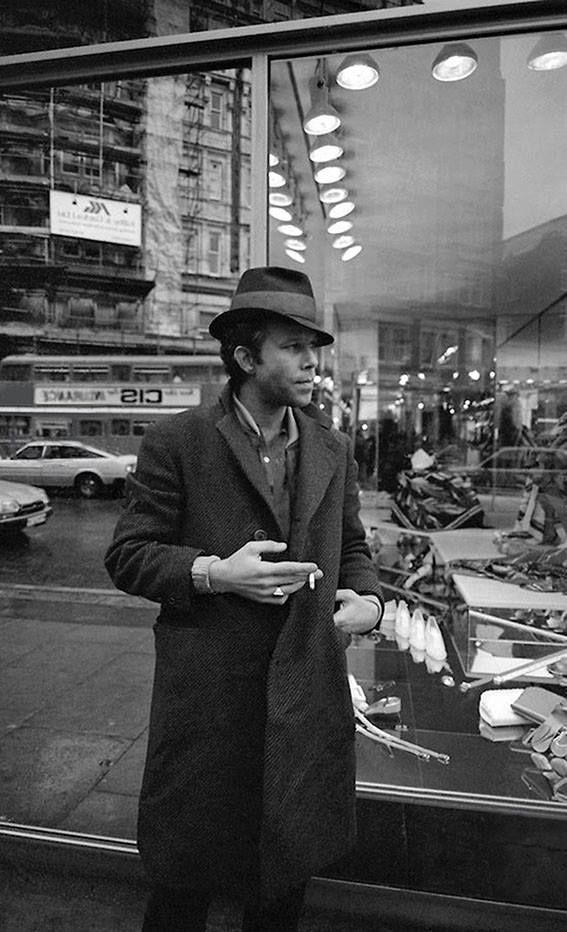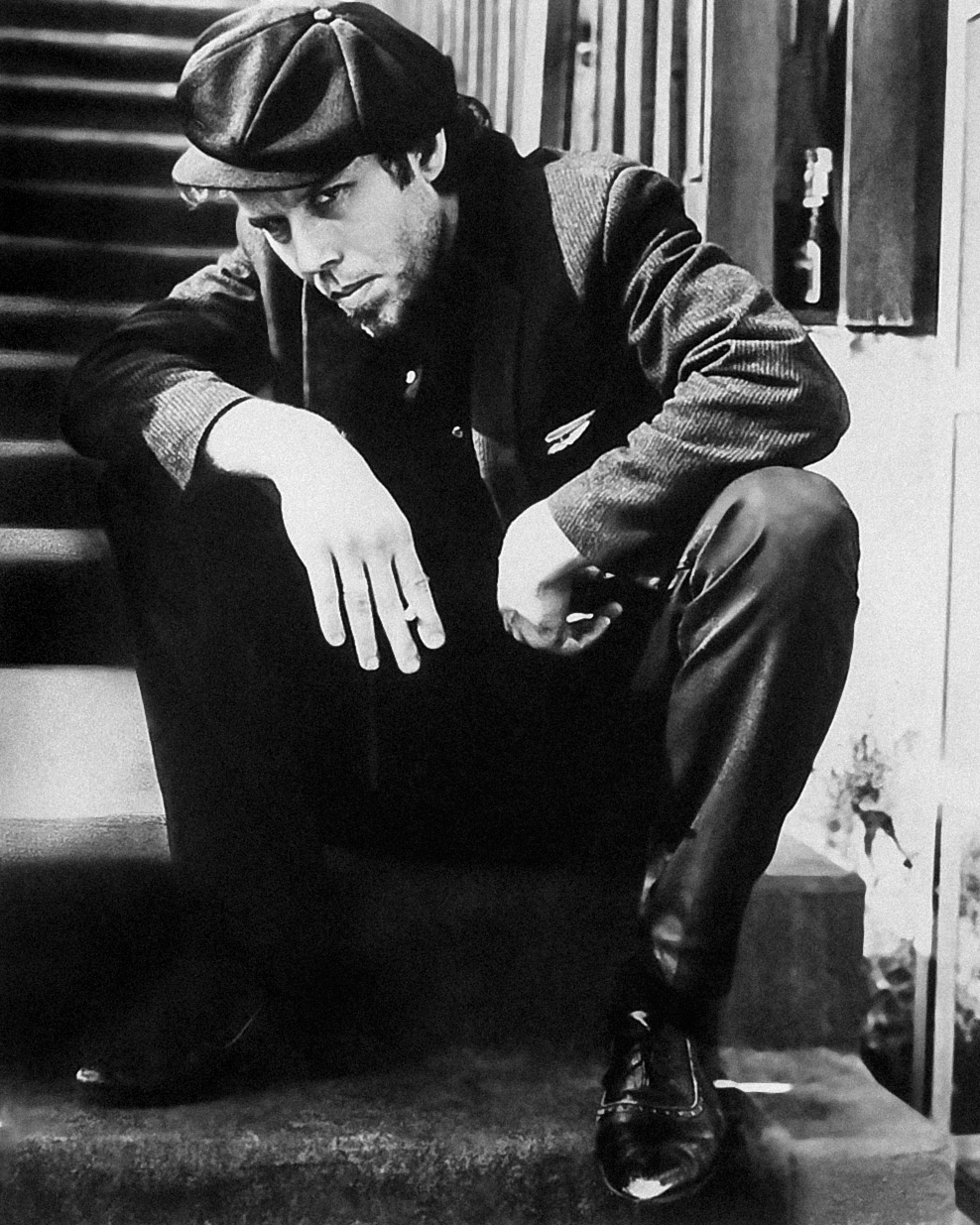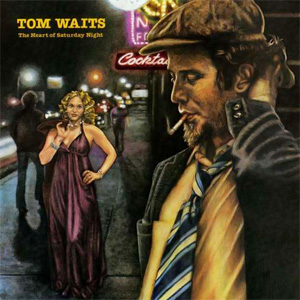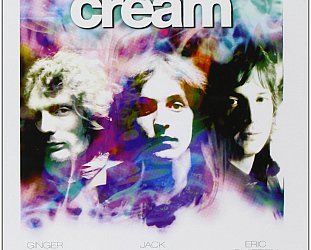Graham Reid | | 3 min read
Shiver Me Timbers
.jpg)
Unlike other albums considered for this on-going column, this one by Tom Waits didn't come off the shelf at random.
Although it sort of did.
As mentioned previously, during the floods of 2022 Elsewhere's office was awash and so we lost around 800 albums and scores of CDs, books, travel journals and family photos.
Among those so damaged were about 20 albums by a longtime favourite Tom Waits.
Then recently a friend was selling up parts of his collection and offering a stack of Waits' albums, which I happily jumped on and paid for just to be reacquainted with music which had always meant so much to me.
Of those albums the one which came to hand immediately was The Heart of Saturday Night which was Waits' second album (after his ironically named debut Closing Time).
 This was Waits in his boho jazz period although not quite the fully-fledged barfly which increasingly became his public image, and which eventually he would have to escape through a remarkable reinvention with that trilogy of Swordfishtrombones, Rain Dogs and Frank's Wild Years in the Eighties.
This was Waits in his boho jazz period although not quite the fully-fledged barfly which increasingly became his public image, and which eventually he would have to escape through a remarkable reinvention with that trilogy of Swordfishtrombones, Rain Dogs and Frank's Wild Years in the Eighties.
But for Heart of Saturday Night he was the pool hall habitué, the pianist in the dark corner of a sleazy bar and a broke-voiced balladeer with a love of Sinatra and jazz.
This album meant so much to me in a time of highly polished Eagles, Loggins and Messina, Jackson Browne and others out of LA at the same time.
It had a Beat poet edge on songs like Diamonds on my Windshield (“colder than a well-diggers arse”) and the title track which hadn't been part of rock since early Dylan a decade previous. It was like smooth nightclub jazz gone corrupt in some places (New Coat of Paint) and there was a broken romantic heart also (San Diego Serenade).
There was walking bass, saxophone, clarinet and orchestration. But the strings weren't sweetened to pull on the heartstrings but to add counterpoint to Waits' gruff balladeer.
And the cover echoed Sinatra's classic In the Wee Small Hours of about 20 years previous.
It was an album rooted in the past (Fumblin' With The Blues) and traditions but distinctively contemporary and a voice from the other side where the curtain is pulled back to reveal the tittie bars, gambling losers, despoiled woman and shady men full of self-pity in the twilight of their lives.
There was also beauty in his melodies, songs which could easily be covered by others who could get the tune down (Please Call Me Baby) but might miss the soul behind the song.
In the early Eighties I had a two hour, free-format radio show on Radio Pacific on a Saturday night between 6pm and 8pm.
 It was named after this album and the opening section of the song was the theme music.
It was named after this album and the opening section of the song was the theme music.
It was a statement at the time and the show garnered a lot of outsider listeners, and my guests included the young Don McGlashan (who talked about a song which was something to do with wiping your bum with a white kitten), the late illustrator Barry Linton (who played rude boy reggae like Why You Shave Your Heery Pum-pum?), Simon Grigg talking punk and a guy who was the manager of Yes but who had John Lennon's phone number – this was in 1980 – so we gave him a call . . . but got no response.
Waits was played often.
Some time later I had Waits' beautiful Shiver Me Timbers played at the funeral of my father who was a man drawn to the sea: “I'm leaving my family, I'm leaving all my friends. My body's at home, but my heart's in the wind, where the clouds are like headlines on a new front-page sky. My tears are salt water, and the moon's full and high . . .
“So please call my missus, gotta tell her not to cry now cause my goodbye is written by the moon in the sky. Hey, and nobody knows me, I can't fathom my staying, And shiver me timbers, cause I'm a-sailing away . . .
“And the fog's lifting, and the sand's shifting, and I'm drifting on out . . . so come and swallow me, follow me, I'm traveling alone. Blue water's my daughter, I'm gonna skip like a stone . . .”
 Such a heartbreaking lyric and of course I can't ever hear it without thinking of my father, too often on land for his liking.
Such a heartbreaking lyric and of course I can't ever hear it without thinking of my father, too often on land for his liking.
The Heart of Saturday Night album has its flaws: perhaps too sentimental, too stylised and informed by the character Waits was time, maybe a bit too melancholy for the times . . .
But there is damaged beauty in these songs and I missed them when the album was washed away.
I'm very glad it – and a bunch of other Waits albums – has come in again on a high tide.
.
You can hear this album on Spotify here
.
Albums considered in this on-going page of essays are pulled from the shelves at random, so we can get the good, the bad or the indifferent from major artists to cult acts and sometimes perverse oddities.





post a comment